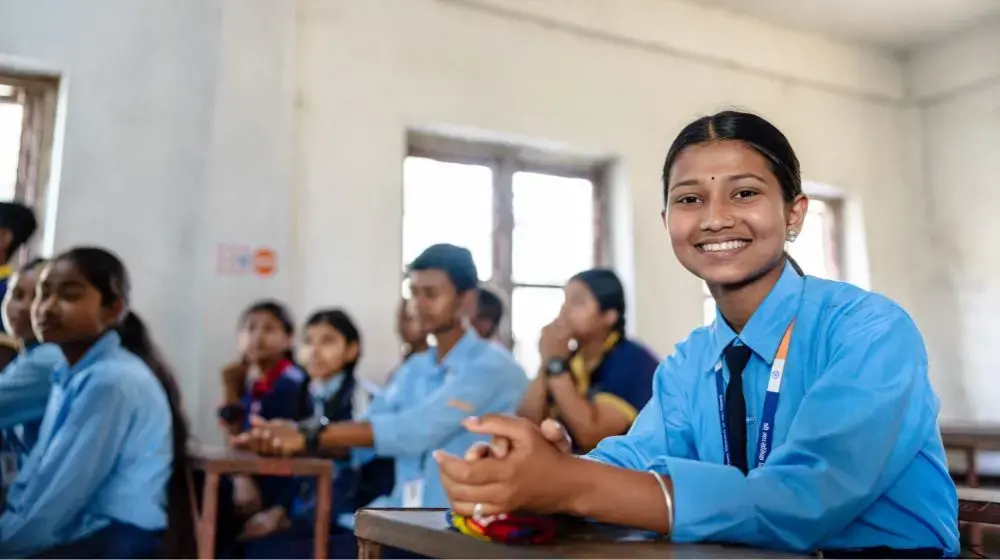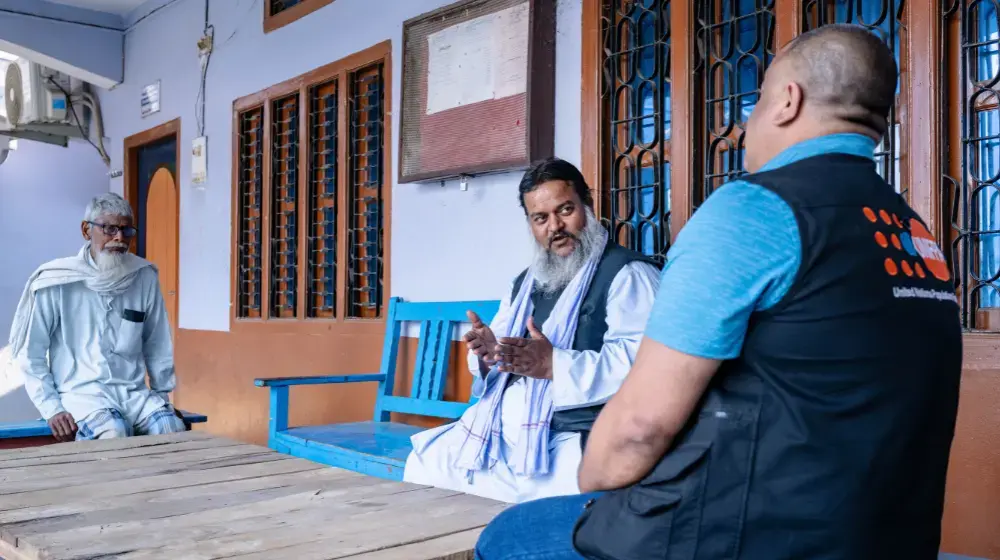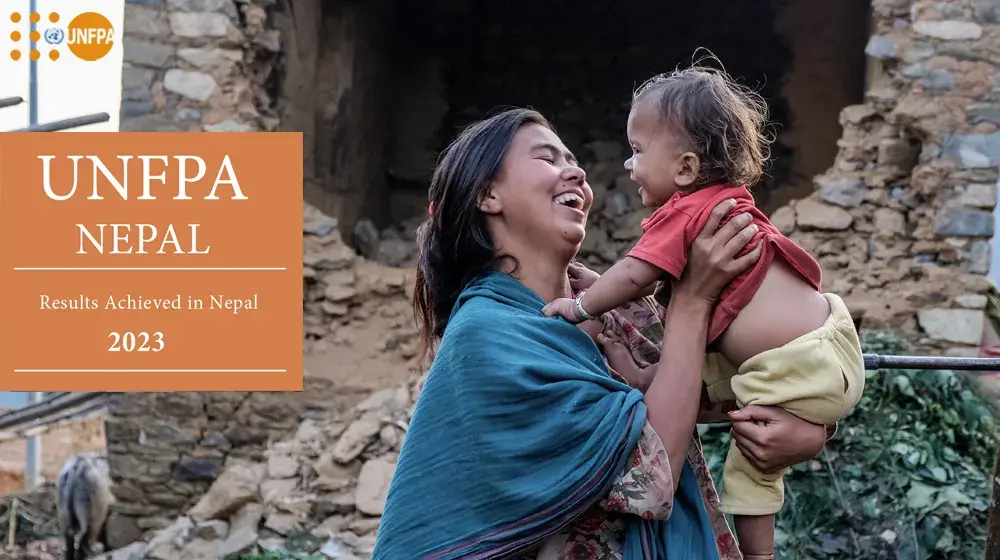Officials from the member states of the South Asian Association for Regional Cooperation (SAARC) adopted "Kathmandu Call for Action" to end child marriage in South Asia. The 12-point call for action was endorsed in the presence of Honorable Minister of Women Children and Social Affairs, Ms. Nilam K.C. (Khadka), and Director Social Affairs, SAARC Secretariat, Ms. Fathimath Najwa. The Honorable Minister expressed support for speedy implementation of the Call for Action and reiterated the government of Nepal's commitment to end child marriage in Nepal by 2020.
The Ministry of Women, Children and Social Welfare of the Government of Nepal hosted the convening on using the law to end child marriage, particularly focusing on how the lack of government accountability is leading to these human rights violations against young women.
Kathmandu Call for Action to End Child Marriage in South Asia
Endorsed on November 7, 2014 at the Regional Convening on Using Law to Promote Accountability to End Child Marriage
Organized by: SAIEVAC Regional Secretariat and Center for Reproductive Rights
Hosted by: Ministry of Women, Children and Social Welfare, Government of Nepal
Supported by: United Nations Population Fund (UNFPA), Asia Pacific Regional Office, and Ford Foundation
-----------------------------------------------------------------------------------------------------------------
We, the participants at the Regional Convening on Using Law to Promote Accountability to End Child Marriage, which includes representatives of SAARC members states, and members of national, regional and international partner organizations, have gathered in Kathmandu, Nepal, on November 6 -7, 2014, to discuss the importance of using the law and legal strategies to promote accountability for ending child marriage that may be implemented, nationally and regionally, in support of the strategic actions outlined in the Implementation Framework for the Regional Action Plan to End Child Marriage in South Asia, developed and endorsed by SAIEVAC in 2014.
Reaffirming the efforts of all stakeholders to end child marriage and address its consequences, and more specifically, commitments made by governments, in the region to uphold the SAARC Social Charter, the SAARC Convention on Regional Arrangements for the Promotion of Child Welfare and the SAARC Convention on Trafficking, SAARC Youth Charter and Decade of the girl child international treaties signed and ratified by governments in the region including the Convention on the Rights of the Child, the Convention on the Elimination of All Forms of Discrimination against Women, the International Covenant on Civil and Political Rights, the International Covenant on Economic, Social and Cultural Rights and the Convention Against Torture, and consensus documents including the Programme of Action adopted at the International Conference on Population and Development in Cairo and the Beijing Platform for Action adopted at the Fourth World Conference on Women in Beijing,
Reaffirming our determination as key stakeholders to consistently implement and promote a rights-based approach to children's well-being and development that is premised on standards recognizing the "best interest of the child" and the "evolving capacities of the child" and collaborate with fellow stakeholders to prevent, prosecute and combat violence against children, especially violence rooted in patriarchal norms and gender biased stereotypes that disproportionately affect the health, well-being and human rights of girls,
Recognizing that child marriage is a discriminatory practice and manifestation of women's and girls' unequal status in society which reinforces their socially constructed as mothers and caregivers and undermines their enjoyment of fundamental rights guaranteed under national constitutions, violating a broad range of human rights guaranteed under international instruments, particularly their sexual and reproductive rights and the right to when and whom to marry,
Recognizing that despite the steps taken in South Asia to end child marriage including by: ensuring universal access to education and reproductive health information and services; preventing sexual and domestic violence, physical and emotional abuse, early and forced pregnancy, trafficking and exploitation, forced labour, isolation and confinement; and removing barriers to access to legal recourse and remedies for violations of children's rights. Girls across the region continue to experience violence, discrimination and the harmful consequences of early pregnancy, including maternal mortality and morbidity, and governments face many challenges in ensuring the adequate protection of children from these harms,
Acknowledging that child marriage is not merely a social evil but it is a punishable crime and a human rights violation which triggers a continuum of harms in the lives of girls and women that have a long-term detrimental impact, not just at an individual level but also on the overall socio-economic development and prosperity of countries. Violence against children, especially girls married as children, is not solely a private family matter but a public concern that casts upon States the obligation of due diligence to investigate cases of child marriage, prosecute perpetrators, provide redress to victims and introduce effective measures to prevent the recurrence of violations,
Also building on the development and endorsement of the Regional Action Plan to End Child Marriage in South Asia (2015-2018) and its Implementation Framework and the urgent need to take bold and meaningful steps to stop discrimination and violence against women and girls resulting from child marriage,
To achieve our joint goals and shared vision that children throughout South Asia enjoy their right to harmonious development and be protected from all forms of discrimination, inequality, violence, abuse, exploitation, neglect and threats to their reproductive and sexual health and recognizing the specific vulnerability of girl children to violations and abuse arising from being given away in marriage before a minimum age of 18.
We unanimously call for the following urgent actions to be taken by governments in South Asia to respect, protect and fulfill the human rights of all children, especially girls, with full support from civil society, with full participation of adolescent girls and boys and youth other partners dedicated to eliminating child marriage:
- Formally recognize and denounce child marriage as a human rights violation that governments in the region are obligated to monitor, prevent, punish and address through legal remedies and administrative measures.
- Review and harmonize national laws and policies relating to child marriage in line with constitutional guarantees of fundamental rights, commitments made in SAARC instruments and state obligations to respect, protect and fulfill human rights under international law and comply with reporting requirements and implement recommendations.
- Eliminate discriminatory provisions concerning marriage in all laws, including personal laws by establishing a uniform minimum legal age of marriage of 18, clarify the legal status of child marriages within a specific time frame, creating safeguards to ensure the full and informed consent of parties to a marriage, removing burdensome requirements for ending a child marriage and amending specific provisions to ensure equal rights within marriage regardless of religious background.
- Ensure access to legal remedies for girls whose rights are violated as a result of child marriage by introducing appropriate laws, raising legal awareness, providing legal counseling and legal aid and enforcing penalties for violations of the law.
- Harmonize child marriage prevention and prohibition laws with laws that protect against all forms of violence including sexual violence, require birth and marriage registration, determine property rights and ensure equal citizenship rights and other relevant laws.
- Introduce legal reform recognizing marital rape as a punishable offense without establishing an age limit for its recognition as a crime and prescribing a lesser punishment.
- Strengthen the enforcement of national laws prohibiting child marriage, specifically by ensuring that that local government officials have the authority and capacity to execute their responsibilities to prevent child marriages in local communities.
- Ensure that girls who are married under 18 years, or have left a child marriage, have access to various forms of institutional support including psycho-social counseling, protection mechanisms including toll free help lines and opportunities for economic empowerment.
- Ensure access to a full range of sexual and reproductive health information and services for girls and boys to inform them about the risks of early marriage and ensure immediate access to such information and services to married girls as a means to protect them against the risks and consequences of early pregnancy.
- Support efforts by national human rights institutions to promote accountability for violations resulting from child marriage and ensure compliance with international norms and concluding observations issued by U.N. treaty monitoring bodies.
- Support the inclusion of a specific target to eliminate child marriage under the goal on gender equality in the post 2015 Sustainable Development Goals.
- Ensure the effective implementation of the Regional Action Plan to End Child Marriage in the South Asia by allocating adequate resources for its successful implementation in 2015-2018.
We unanimously adopt this Call for Action to End Child Marriage, in Kathmandu on November 7, 2014.




